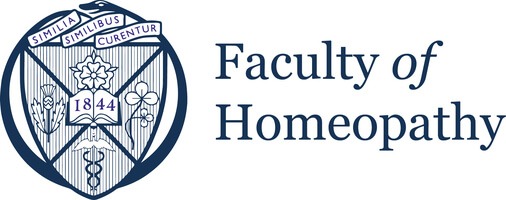Drugs we use every day, or for medical purposes to treat illnesses, in the long run, can interfere with the absorption and metabolism of essential vitamins and minerals.
Knowing which drugs can deplete specific nutrients is an important part of protecting your health when taking pharmaceuticals.
This guide will provide an overview of commonly prescribed drugs that are known to strip your body of vital nutrients, so that you can make better decisions about when and how to supplement yourself with additional vitamins and minerals.
Additionally, it will provide advice on some ways to reduce the risk of nutrient depletion caused by certain medications.
Vitamins and minerals are essential nutrients that play an important role in human health. They have many different roles in the body, from helping to bind cells together and creating hormones, to regulating nerve function, managing metabolism and supporting the production of new cells.
Vitamins include A, C, D, E and K (fat-soluble vitamins) as well as B vitamins (water-soluble) such as thiamine, riboflavin, niacin and more. Minerals include calcium and magnesium as well as zinc, sodium and potassium.
Vitamins and minerals are obtained either through food or dietary supplements. Many people take supplements to replace missing nutrients or to counteract deficiencies caused by disease or poor diet. However, certain drugs — both over-the-counter medications and prescription medications — can deplete vitamins and minerals in the body.
It is therefore significant to monitor one’s intake of these substances while taking medication or participating in medical treatments that can alter their levels in the blood.
Many drugs can cause significant depletion of essential vitamins and minerals. Taking medicines for a long period of time can reduce nutrient levels in the body, which may lead to calcium, potassium, magnesium and B vitamin deficiencies. Some drugs commonly used that are known to rob you of vital nutrients include:
• Statin drugs used to lower cholesterol can cause depletion of coenzyme Q10 (CoQ10), a nutrient important for cardiovascular health. It is also essential for optimizing energy levels in cells throughout the body.
• Proton pump inhibitors, H2 blockers and anti-ulcer medications interfere with absorption of zinc, Vitamin B12, magnesium, iron, and calcium in the gut which may result in nutrient deficiencies over time.
• Non-steroidal anti-inflammatory drugs (NSAIDS) like ibuprofen, diclofenac and naproxen hinder the absorption of folic acid (a B vitamin), vitamin C and calcium, which may lead to long term deficiency if taken frequently or in large doses.
• Chemo therapy agents such as methotrexate and taxol deplete folate or its synthetic forms folic acid and folinic acid while they decrease Vitamin B12 levels too.
• Anti-seizure medications inhibit the absorption of folate while stimulating the excretion of zinc from the body, resulting in severe depletion over time if not replenished periodically with supplementation from an experienced health practitioner
Certain medications and drugs can lead to vitamin and mineral deficiencies. A deficiency occurs when the body doesn’t have enough of a nutrient, which can happen when drugs interfere with absorption or digestion, or increase excretion.
Knowing how medications can deplete vitamins and minerals is essential to maintaining healthy levels of these important compounds.
Common sources of vitamin and mineral depletion include:
- Antacids: Can interfere with the absorption of calcium, magnesium and iron.
- Antibiotics: May reduce the absorption of B vitamins, and vitamin D, as well as the minerals iron, zinc and magnesium.
- Antidepressants: These drugs may affect levels of B vitamins, folic acid, calcium and phosphorus.
- Anticonvulsants: May reduce levels of several essential nutrients including Vitamin K, magnesium, zinc phosphate, manganese phosphate and potassium chloride.
- Steroids: Can lead to deficiencies in Vitamin C as well as other vitamins in the B group such as thiamine (B1), riboflavin (B2), niacin (B3) pyndoxol (B6) folate (B9). Deficiencies may also occur in certain minerals such as calcium and potassium that are important for bone health.
Vitamin and mineral deficiencies can lead to a variety of health issues, including tiredness, muscle weakness, joint pain, impaired vision, weakened immune system and anemia.
Vitamins and minerals are essential for healthy body function and include calcium, magnesium and vitamins A, B12 and D. Certain drugs can interfere with your body's ability to absorb or utilize specific vitamins or minerals.
It is important to understand the effect of any medications you take on your body’s nutrient levels so you can take proactive steps to address any potential deficiencies.
Calcium
Calcium supplements may have their effectiveness compromised by prescription drugs that contain aluminum salts, such as the antacids aluminum hydroxide (Amphojel), calcium carbonate (Tums), magnesium hydroxide (Phillips’ Milk of Magnesia) or sodium biphosphate powder.
Vitamin A
Certain liver disorder treatments built around vitamin A can be diminished in efficacy when taken with concomitant antibiotics like tetracyclines or sulfonamides; these prescriptions reduce the amount of vitamin A carried in the blood stream due to competitive binding for transport molecules.
Certain medications can reduce the body’s ability to absorb and utilize essential nutrients, leading to potentially dangerous vitamin and mineral deficiencies.
Research shows that drug-induced nutrient depletion can play a significant role in poor health and chronic health conditions, so it’s important to be aware of this possible side effect.
Fortunately, there are steps that you can take to counteract vitamin and mineral depletion caused by drugs. Considering these options when taking medication is key for optimal health and wellbeing:
1. Consult your doctor: Speak with your doctor about any medication you’re taking — they may be able to suggest a different prescription or adjust dosage levels in order to improve nutrient bioavailability or avoid certain micronutrient-depleting drugs if they are linked with potential nutrient deficiencies.
2. Monitor dietary intake: Make sure you’re getting enough vitamins and minerals in your diet; generic multivitamins are available over the counter at most grocery or drug stores if needed.
The Office of Dietary Supplements of the National Institutes of Health recommends specifically looking for foods high in B vitamins such as eggs, green leafy vegetables, dairy products, seaweed (for Vitamin B12), nuts/seeds, legumes/beans (for Vitamin B6), as well as fatty fish like salmon for Vitamins D3 & K2.
3. Consider supplementing: Ask your healthcare practitioner about supplementing with any vitamins or minerals that could be affected by drug regimen — especially ones like Calcium, Magnesium, Folate (Folic Acid), Vitamin D3 & K2 which can interact with many prescriptions used by older adults.
It's also worth considering bio identical hormones including pregnenolone since age-related hormone decline increases sensitivity to synthetic hormones including those found in various medications) vitamin C is also often recommended due its antioxidant qualities and ability to help combat drug side effects like nausea & vomiting — particularly useful for cancer treatments).
Considering individualized ancillaries may also be beneficial too, depending on situation/needs to be outlined by healthcare practitioner - especially those reacting negatively or having trouble tolerating therapy being administered).
It is important for people who use any of the drugs discussed here, or any other medication, to monitor their nutrition and supplement when necessary.
Some vitamins, minerals, and other substances may be depleted with regular use of certain medications. Therefore, it is typically beneficial to discuss your daily supplement requires with a physician before starting a new course of treatment in order to ensure that the vitamins and minerals you need stay in balance.
Eating well-balanced meals each day and taking nutritional supplements to replace any deficiencies can often times improve the efficacy of a drug treatment program while also reducing potential side effects.

Consultant in General Internal Medicine (GMC reg. number: 7541548) and Specialist in Complementary Cancer Care
MBBS, MRCIM (Spain), MSc Homeopathy, MFHom, Master practitioner in Ericksonian Hypnotherapy and Neurolinguistic Programming, MSc in Nutrition
Integrated medicine Doctor and Holistic Medicine Practitioner



